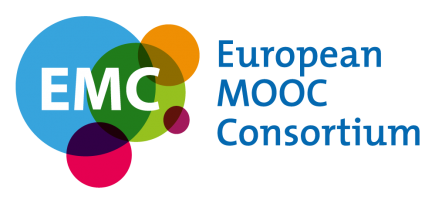The European MOOC Consortium (EMC) has proposed a Common Microcredential Framework (CMF). This would allow for mutual recognition of small qualifications between institutions. These small qualifications are about the same amount of study as a typical university course (100 to 150 hours).
While funded by the European Commission, EMC is a consortium of online education providers, not a government agency. The CMF does not have any legal or regulatory status. However, the consortium has respected members, and the CMF may well be formally adopted, or operate successfully without legal backing.
The CMF is very different to NZ and Australian proposals for micro-credentials. The CMF is more aligned with degree programs, whereas ANZ micro-credential proposals are derived from vocational education and industry certifications.
CMF appears to be a way to recognize individual university courses. Students would study online, and undergo summative assessment, as they do now, but could be issued with a qualification after just one such course. At present, students in the EU, Australia, and much of the world, have to accumulate many courses before being awarded a qualification. Also the micro-credentials would be mutually recognized between institutions, whereas recognition of individual courses is currently limited.
The CMF is aligned with Level 6 and 7 in the European
Qualification Framework. That is equivalent to a Bachelor Degree (level 7), or Masters Degree (level 8), in the Australian Qualifications
Framework 9AQF).
The New Zealand Qualifications Authority (NZQA) recognized micro-credentials from tertiary education organizations in August 2018. The minimum NZ micro-credential is about 40 hours study, which is much smaller than the 100 hours of the CMF. Also the NZQA seems to
have avoided equating their micro-credentials to any existing formal
qualification. The NZ approach appears to be designed to recognize industry certifications, rather than provide for smaller university qualifications.
Australia has not recognized micro-credentials in the AQF. There are some micro-credentials offered outside the AQF, such as DeakinCo's Professional Practice Credentials. These place an emphasis on "soft" skills, with an approach to skills recognition similar to that of the vocational
education and training (VET) sector. With this
approach those applying for a credential do not undertake formal
coursework, and instead collect evidence of their existing skills. This
process is referred to as Recognition of Prior
Learning (RPL) in the VET sector. The emphasis is on skills to complement university degrees, rather than provide building blocks for them.
The CMF is similar to the approach I proposed in "Mobile Learning with Micro-Credentials for International Students", at EduTECH 2019. University degree courses would be converted to micro-credentials, with minimal changes. Students would study online in courses designed using existing distance education techniques. These courses would count towards a degree.

No comments:
Post a Comment